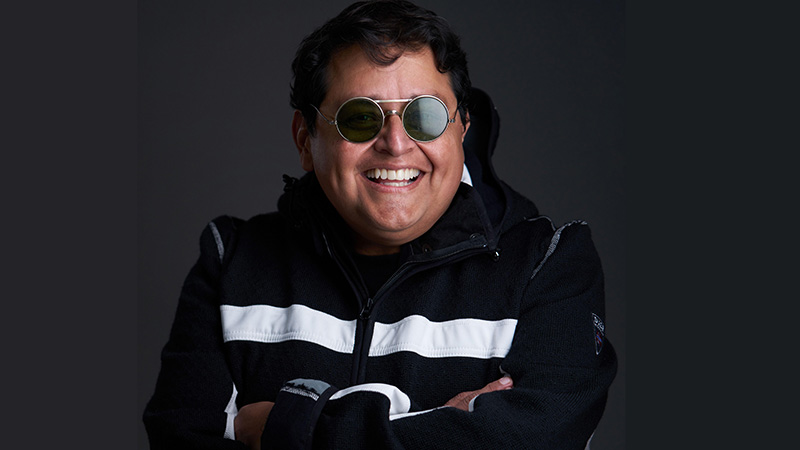All Software design processes should always start with the highest ethical and technical standards of data privacy for each individual
Software professionals are on the frontlines when it comes to developing new online applications for consumers all over the world where regulatory officiating by lawyers, judges and elected officials, especially in terms of data privacy and digital ethics, invariably occurs AFTER the software has been extensively developed. The Digital Deputy Act seeks to include software professionals directly in the legal conversation regarding digital ethics and privacy along with lawmakers, politicians, lawyers and law enforcement for the 21st Century.
Optional State Licensure of Software professionals promotes a new type of law enforcement “deputies” in terms of enforcing digital ethics as well as the California Consumer Protection Act (CCPA) and other Digital Data Privacy Laws – while in addition to lawyers- but in a UNIQUELY, PROACTIVE MANNER WHILE SOFTWARE & DIGITAL DATA IS BEING CREATED by these very same software professionals and with their everyday work colleagues.
This whitepaper suggests extending current issuing of State of California Board of Professional Engineers, Land Surveyors, and Geologist professional licenses to further include, entirely as an option, formally educated software professionals so as achieve higher levels of privacy awareness and digital ethics at the very start of the software development process.
Our DDA proposed legislation permits all software professionals the option to become CALIFORNIA STATE LICENSED SOFTWARE PROFESSIONALS by taking a license entrance exam as well as maintain their California state license through annual coursework that will require professional ethics classes and materials geared toward helping the greater public good just as state licensed professional engineers, lawyers, doctors etc. already do. In this manner, public policy toward beneficial digital ethics can be implemented by their professionally licensed colleagues and elected California governing bodies through these Professional Licenses issued by the State of California in a manner similar to currently licensed engineers, lawyers, and medical doctors.
Along with lawyers, California licensed software professionals could bring much needed data privacy legal and ethical policy implementation and enforcement. Thus giving rise to the notion of Wild West-style deputizing of individuals to assist with ethical cyber law enforcement on the ground level at the time software is being developed – thereby ensuring that digital ethics are implemented at the wellspring of software development in Silicon Valley and beyond.
As Silicon Valley in Northern California is the principle hub to world’s software development industry, a state licensure regime targeted for software professionals that adheres to the highest ethical and technical standards imposed by regulatory legislation ensures, policywise, that the general public and their individual data is safe within legislatively designated online software platforms and the industry at large – all of which would require a licensed software professional to sign- off on such a public project similar to a professional civil engineer who signs-off on a public bridge project.
Why is this important?
Present lack of ethical data accountability for Big Tech & Internet Service Providers (under present self-regulation schemes) leads to mismanagement individual privacy data online that creates economic and national strategic harms due to resulting massive digital data breaches
How can we remedy this lack of accountability?
Currently, as lawyers and professional engineers with state-issued professional licensees must adhere to and continue to take ethics and professionalism classes as a condition for renewing their licenses, our proposed legislation for California software professionals who choose an optional state licensure should also adhere to and continue to take digital ethics and professionalism classes as a condition to maintaining a proposed state professional license. In this manner, licensed software professionals can become legal deputies in terms of implementing and enforcing California state digital ethics regulations and laws as well as the California Consumer Protection Act (CCPA), California Privacy Rights Act (CPRA) and the newly created California Privacy Protection Agency (CPPA) created by the CPRA — IN ADDITION TO LAWYERS!
Perhaps, similar to the U.S. government providing for federally licensed Patent Agents to practice patent law alongside with Patent Lawyers at the US Patent & Trademark Office. As one “perk” or benefit to passing a proposed licensed software professionals exam, the CCPA, (– while borrowing from its mentor the EU’s General Data Privacy Regulation (GDPR)) could be amended or provided under the CPPA to allow California licensed software professionals to become Data Protection Officers (DPOs) and thus can work in a Big Tech & ISP company as an affordable alternative to current Privacy Officers who are almost always highly paid lawyers with no practical technical training in software.
How would this legislative proposal for State Licenses for Software Professional affect publicly elected California State Assembly & Senate Districts?
As many of the data collected by many California industries through Apps, websites, or from Data Aggregators could be subject to digital privacy and secrecy laws, this would ensure publicly mandated and accountable “best and ethical practices” by all those software professionals who work as software professionals within these industries who may take our proposed optional state professional license exam and procedures for receiving the same.
What person, organization, or governmental entity is requesting introduction of DIGITAL DEPUTY ACT legislation?
Rafael “RAFA” V. Baca , Esq of Silicon Valley is the originator of this concept and whitepaper. Rafa is a U.S. Patent Attorney with a MS Degree in Computer & Data Science and a BS in Mechanical Engineering. Rafa Baca who is currently working as Chair of the American Bar Association Artificial Intelligence and Big Data Committees. Rafa has submitted this DIGITAL DEPUTY ACT proposal to California Reps as well as to US Congressional legislatures.
A “Co-founders board”, namely the DIGITAL DEPUTY ACT SUBCOMITTEE under The Association for Computing Machinery (– San Francisco Bay Area Chapter) representatives, representatives of the IEEE SCV (Santa Clara Valley (“Silicon”) Valley Section) representatives, and open to all other software or digital data professionals in the State of California to get the word out to the California membership to contact their individual California state representatives to enact the DIGITAL DEPUTY ACT and to provide ACM & IEEE ethic guidelines that the Co-founders board would like to see on the license exams and annual maintenance coursework. We are all civic-minded volunteers who want to ensure our individual data is respected as an individual right in the 21st Century.
What Can I do to support this Digital Deputy Act?
DigitalDeputyAct.org would like you to show you support in 2 ways
Contact your CSA / Senator
Click here to get an email to forward to your representative
Become a Committee Member
Make your voice heard
News, Views and Events
Meetup: Wed, Nov 18, 7pm – DIGITAL DEPUTY ACT: A commitment to digital ethics by Software Professionals
DIGITAL DEPUTY ACT – https://digitaldeputy.wpengine.com/ -by Rafa Baca, US Patent Attorney, Chair of the American Bar Association’s Artificial Intelligence & Robotics Committee and Big Data Committee. Agenda 6:45 Zoom networking starts, preregistration here:https://us02web.zoom.us/webinar/register/WN_epV_dBchQauqVT7RCMSfWA 7:00 streaming to YouTube SFBay ACM channel Event Details In this election season, we the electorate are seeing greater activity toward regulation of…
What is the Digital Deputy Act?
The DIGITAL DEPUTY ACT may be one of many concerted proactive actions to ensure digital ethics and privacy rights are expanded while software professionals continue to create software and computer systems that further develop the internet for our daily public use. Using the State Law to enact legal certification of software professionals ensures regular continued…
A Case For Digital Deputies:
Rafa Baca’s personal observations: Government-license: As I am a licensed attorney, not a day goes by where attorney-client ethics and professionalism rules and regulations are not rigorously followed so as not to lose my livelihood, from those ethical and professional requirements arising from multiple government-issued lawyer licenses. Optional – license credential: My father was a California…






